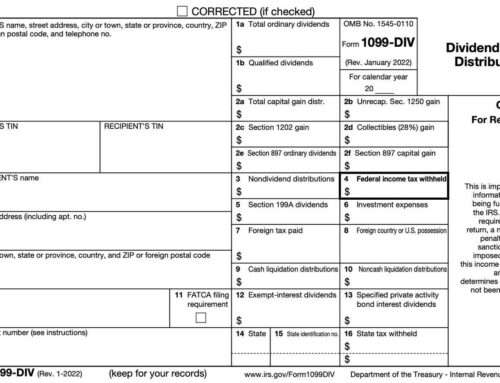Summer is here, and you may be ready to hit the pool, enjoy a BBQ, or just relax in the sunshine. As you enjoy the warmer and longer days, keep in mind that some of your undertakings may impact your 2024 taxes. If you participate in any of the below summertime activities, make sure to let your tax preparer know come tax filing time.
1. Sending your children to day camp. Childcare expenses, including day camp costs, could allow you to qualify for the Child and Dependent Care Tax Credit. The Child and Dependent Care Credit is designed to offset childcare or dependent care expenses incurred while a parent is working. You must have a child who is 12 years or younger and/or another dependent who you claim on your return and who cannot care for themselves. To qualify, you or your spouse must be working, looking for work, or attending school full-time. Parents who pay for summer camp, babysitters, or other care during the summer should accordingly save receipts and information about the care provider, including their name and Tax Identification Number (TIN). Come tax filing time, parents can claim up to $3,000 for one dependent and up to $6,000 for two or more dependents, with a maximum credit of $1,050 and $2,100, respectively.
2. Getting married. Wedding bells may be ringing for you this summer, changing your tax filing status and standard deduction for 2024. Take some time to review if your tax bracket will shift as you move from filing as single to filing as married. You may need to adjust the withholding on your paycheck to make sure you’re withholding enough or not withholding too much in taxes.
3. Working part-time. You or your child may do part-time work over the summer. Part-time employees may not earn enough to owe federal income tax. Your teen would only owe federal income tax from their part-time job if their taxable income is greater than $14,600, the standard deduction for single filers in 2024. If you expect your teen to earn less than this, it could be beneficial to turn off federal income tax withholding on their paychecks. If federal income tax is withheld from their paycheck, your teen would need to file a 2024 tax return to claim their refund. Teenagers working summer jobs might also consider opening their first investment account. Teens could look into opening a Roth IRA, since they are likely in a low income tax bracket. They could contribute after-tax funds at a low tax rate now, then grow those funds tax-free for their future.
4. Doing gig economy work. You may pick up work as an Uber driver or DoorDash food deliverer this summer. Whatever your part-time work, you should know the ins and outs of taxation on your gig economy job. Some gig economy workers are classified as employees and have taxes withheld from their W-2 income. However, other gig economy workers are considered independent contractors and will not have taxes automatically withheld from their paychecks. If you are an independent contractor, you may face a large tax bill come April 15. To avoid this, you could consider making estimated tax payments to the IRS. Learn more by visiting the IRS’s Gig Economy Tax Center.
5. Moving or refinancing. Selling your home can trigger a capital gains tax bill if the difference between the purchase and sale price of your home is greater than $250,000 (single filers) or $500,000 (joint filers). For those who itemize their deductions, refinancing their home could impact your mortgage interest deduction. Reach out to your tax preparer if you sell or refinance your home this summer.
Summer is here, and you may be ready to hit the pool, enjoy a BBQ, or just relax in the sunshine. As you enjoy the warmer and longer days, keep in mind that some of your undertakings may impact your 2023 taxes. If you participate in any of the below summertime activities, make sure to let your tax preparer know come tax filing time.
1. Sending your children to day camp. Childcare expenses, including day camp costs, could allow you to qualify for the Child and Dependent Care Tax Credit. The Child and Dependent Care Credit is designed to offset childcare or dependent care expenses incurred while a parent is working. You must have a child who is 12 years or younger and/or another dependent who you claim on your return and who cannot care for themselves. To qualify, you or your spouse must be working, looking for work, or attending school full-time. Parents who pay for summer camp, babysitters, or other care during the summer should accordingly save receipts and information about the care provider, including their name and Tax Identification Number (TIN). Come tax filing time, parents can claim up to $3,000 for one dependent and up to $6,000 for two or more dependents, with a maximum credit of $1,050 and $2,100, respectively.
2. Getting married. Wedding bells may be ringing for you this summer, changing your tax filing status and standard deduction for 2023. Take some time to review if your tax bracket will shift as you move from filing as single to filing as married. You may need to adjust the withholding on your paycheck to make sure you’re withholding enough or not withholding too much in taxes.
3. Working part-time. You or your child may do part-time work over the summer. Part-time employees may not earn enough to owe federal income tax. Your teen would only owe federal income tax if their taxable income is greater than $13,850, the standard deduction for single filers in 2023. If you expect your teen to earn less than this, it could be beneficial to turn off federal income tax withholding on their paychecks. If federal income tax is withheld from their paycheck, your teen would need to file a 2023 tax return to claim their refund. Teenagers working summer jobs might also consider opening their first investment account. Teens might consider opening a Roth IRA, since they are likely in a low income tax bracket. They could contribute after-tax funds at a low tax rate now, then grow those funds tax-free for their future.
4. Doing gig economy work. You may pick up work as an Uber driver or DoorDash food deliverer this summer. Whatever your part-time work, you should know the ins and outs of taxation on your gig economy job. Some gig economy workers are classified as employees and have taxes withheld from their W-2 income. However, other gig economy workers are considered independent contractors and will not have taxes automatically withheld from their paychecks. If you are an independent contractor, you may face a large tax bill come April 15. To avoid this, you could consider making estimated tax payments to the IRS. Learn more by visiting the IRS’s Gig Economy Tax Center.
5. Moving or refinancing. Selling your home can trigger a capital gains tax bill if the difference between the purchase and sale price of your home is greater than $250,000 (single filers) or $500,000 (joint filers). For those who itemize their deductions, refinancing their home could impact your mortgage interest deduction. Reach out to your tax preparer if you sell or refinance your home this summer.




